Galaxy AI vs Apple Intelligence – who's winning the AI war?
Galaxy AI is first to market, but Apple Intelligence is not far behind
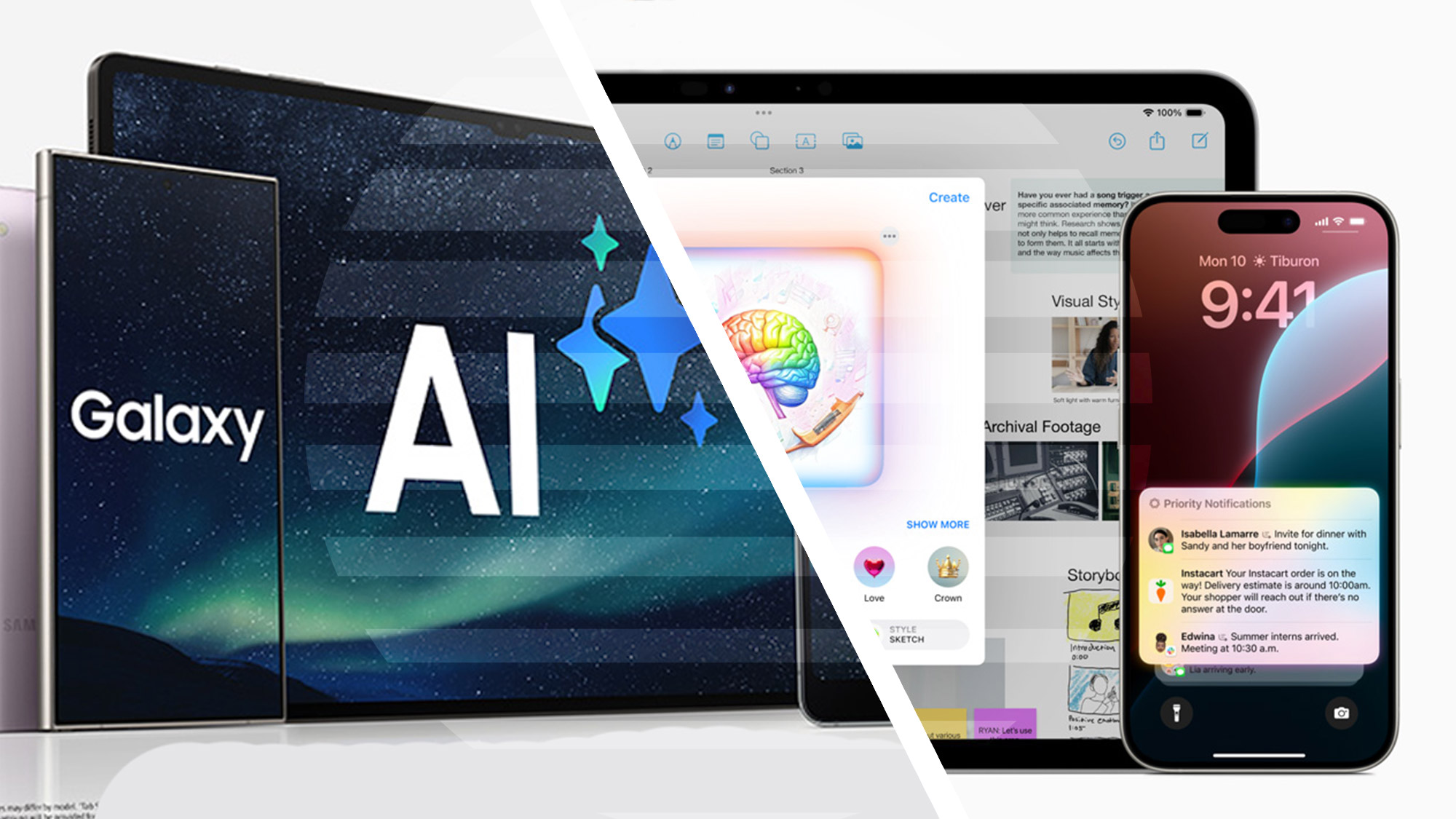
Samsung has announced its latest raft of products at its Paris-based Unpacked event and, as expected, its new Galaxy AI was firmly at the center of almost everything it had on offer.
The new Galaxy AI features include Sketch to Image, which turns your quick doodles into nicer-looking designs, Interpreter, which can do translation between languages for either phone calls or the people you meet, in real time, and Composer for AI-generated emails.
Some or all of these tools will available on Samsung's various new devices, which we've already been lucky enough to try out; check out our hands-on Galaxy Z Fold 6 review, hands-on Galaxy Z Flip 6 review, hands-on Galaxy Ring review and hands-on Galaxy Watch Ultra review for our early verdicts. Some features will also be available on older Galaxy devices, and we've got a full guide to Galaxy AI compatibility to explain it all.
However, Samsung is hardly alone in going hard on AI right now, and many of the new and existing Galaxy AI features are very similar to those that form Apple Intelligence. This was announced at Apple's WWDC 2024 in June, and will be available when iOS 18, iPadOS 18 and macOS 15 Sequoia roll out later this year, probably in September.
Given that Samsung's latest devices launch on July 24, the Korean company will therefore beat Apple to market with its new AI offerings – but does first equal best? Here's how we think the tech giants are shaping up as the AI war enters a new phase.
Image Wand vs Sketch to Image
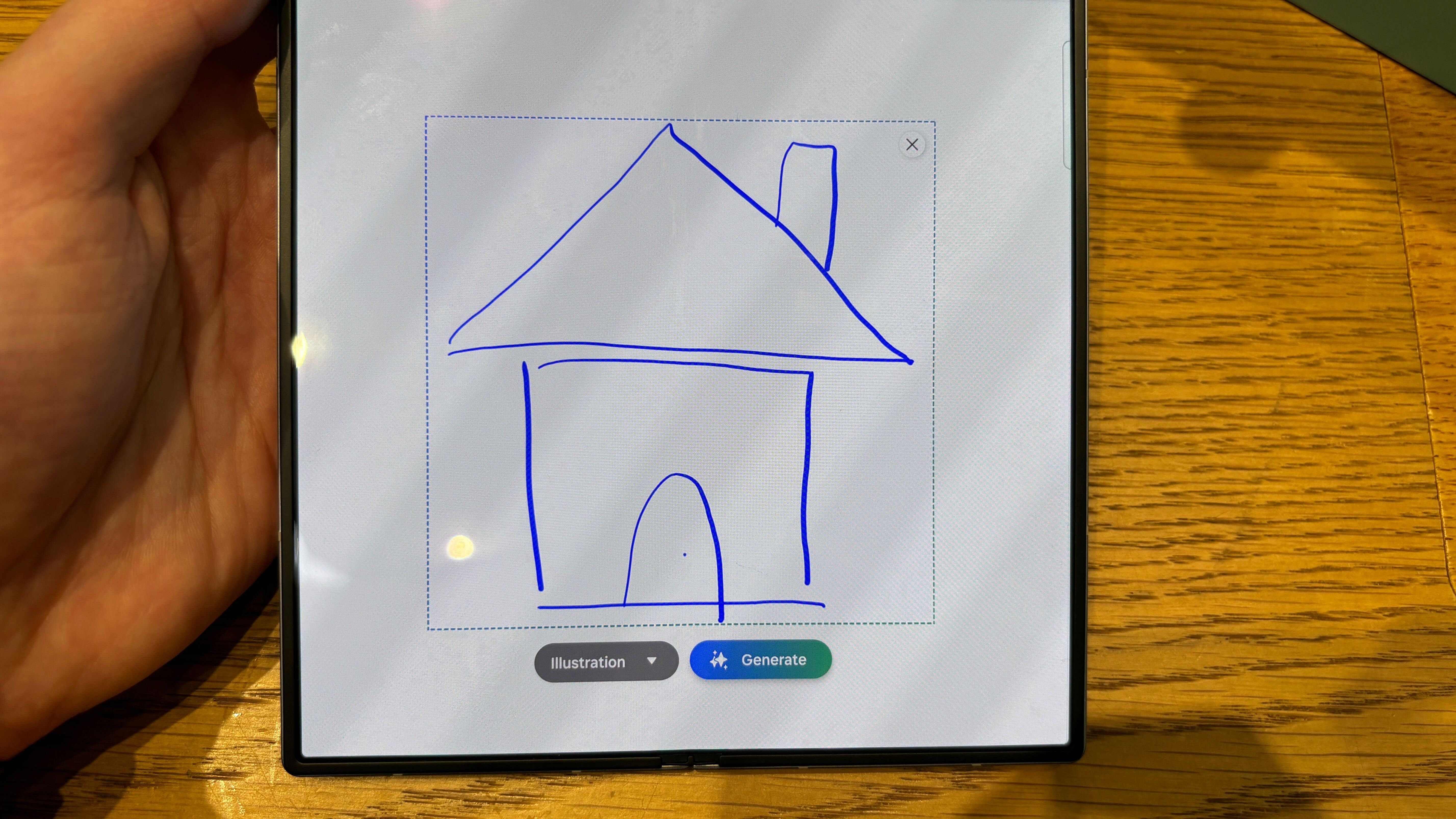
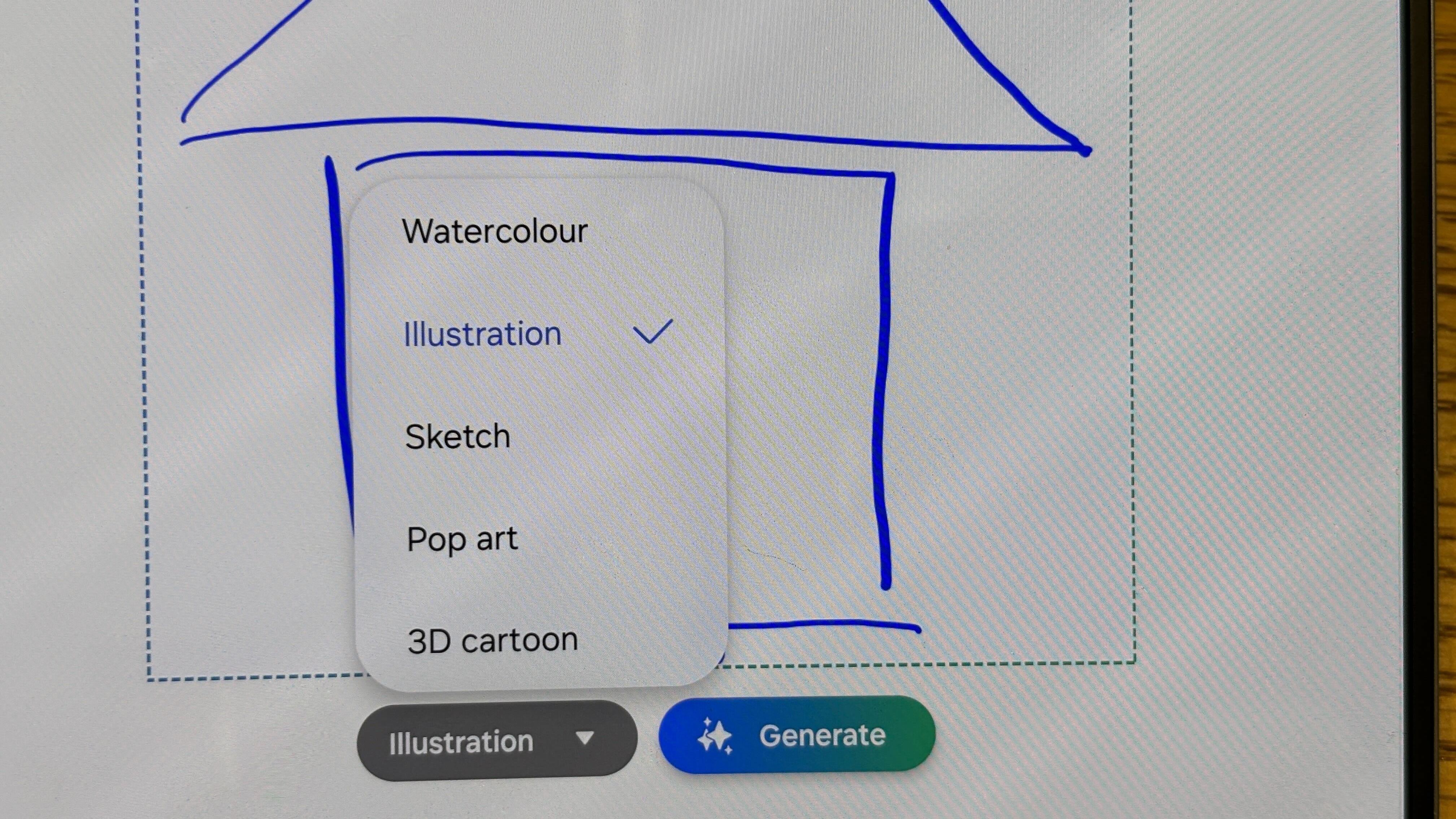
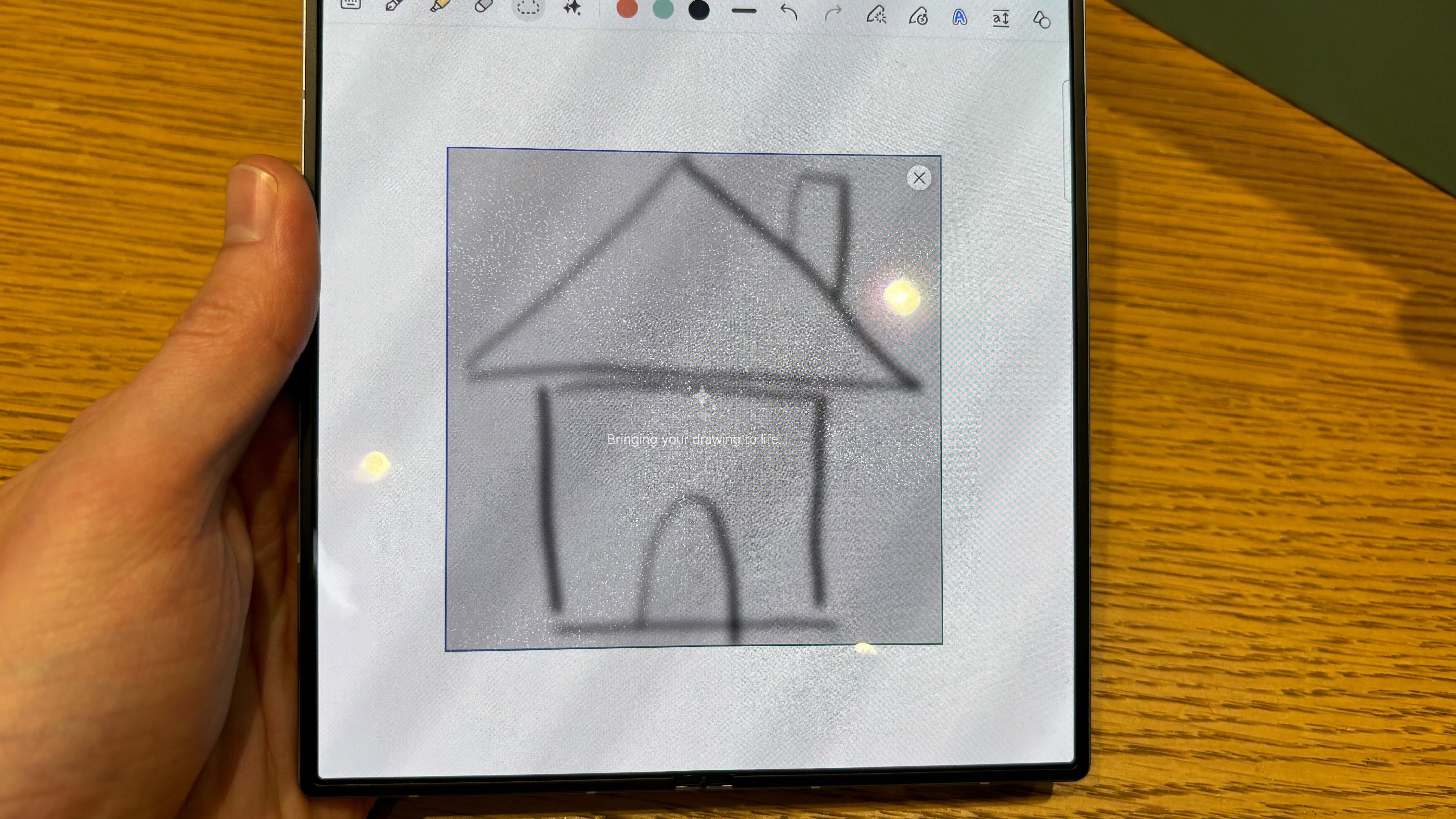
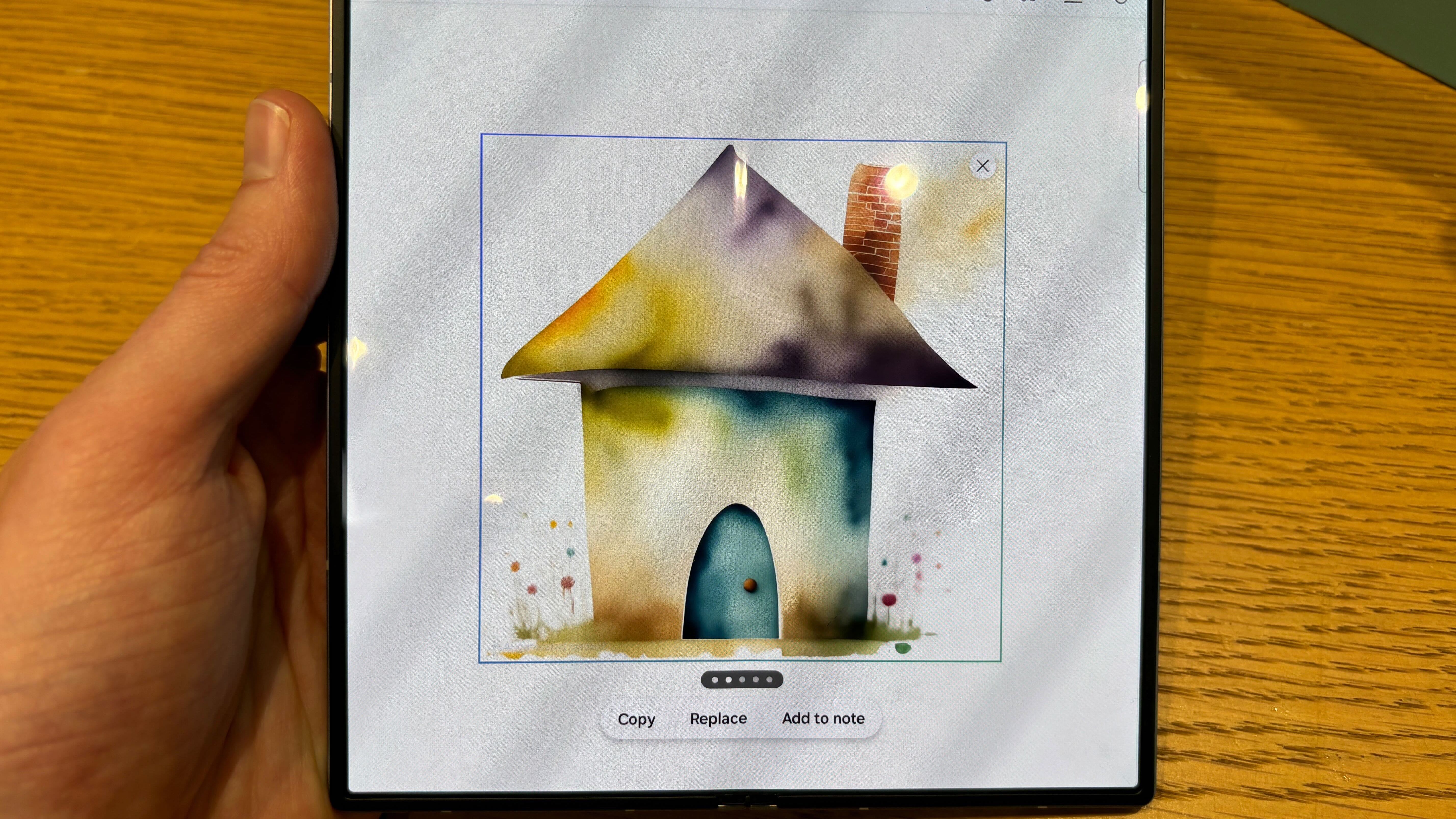
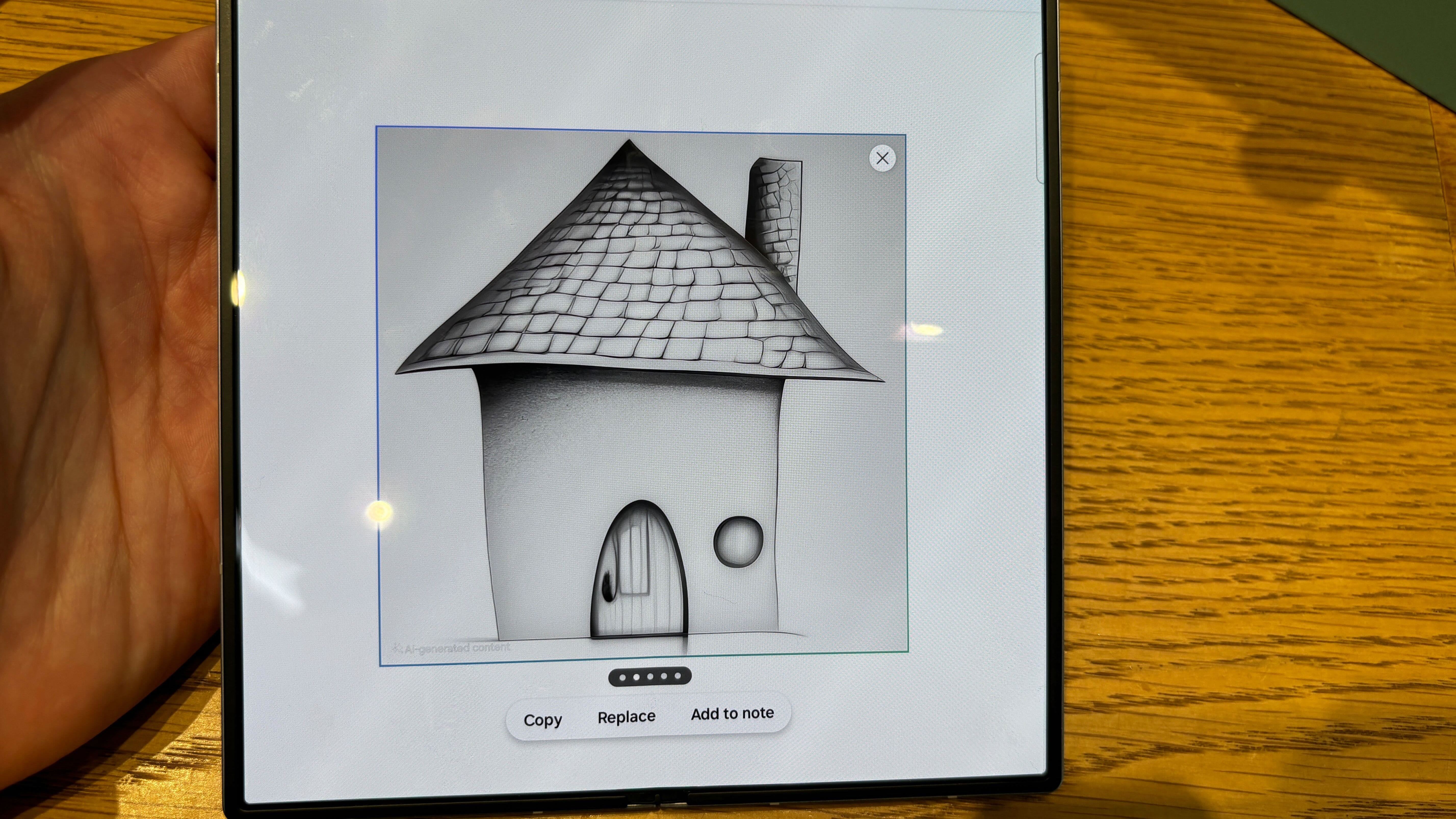
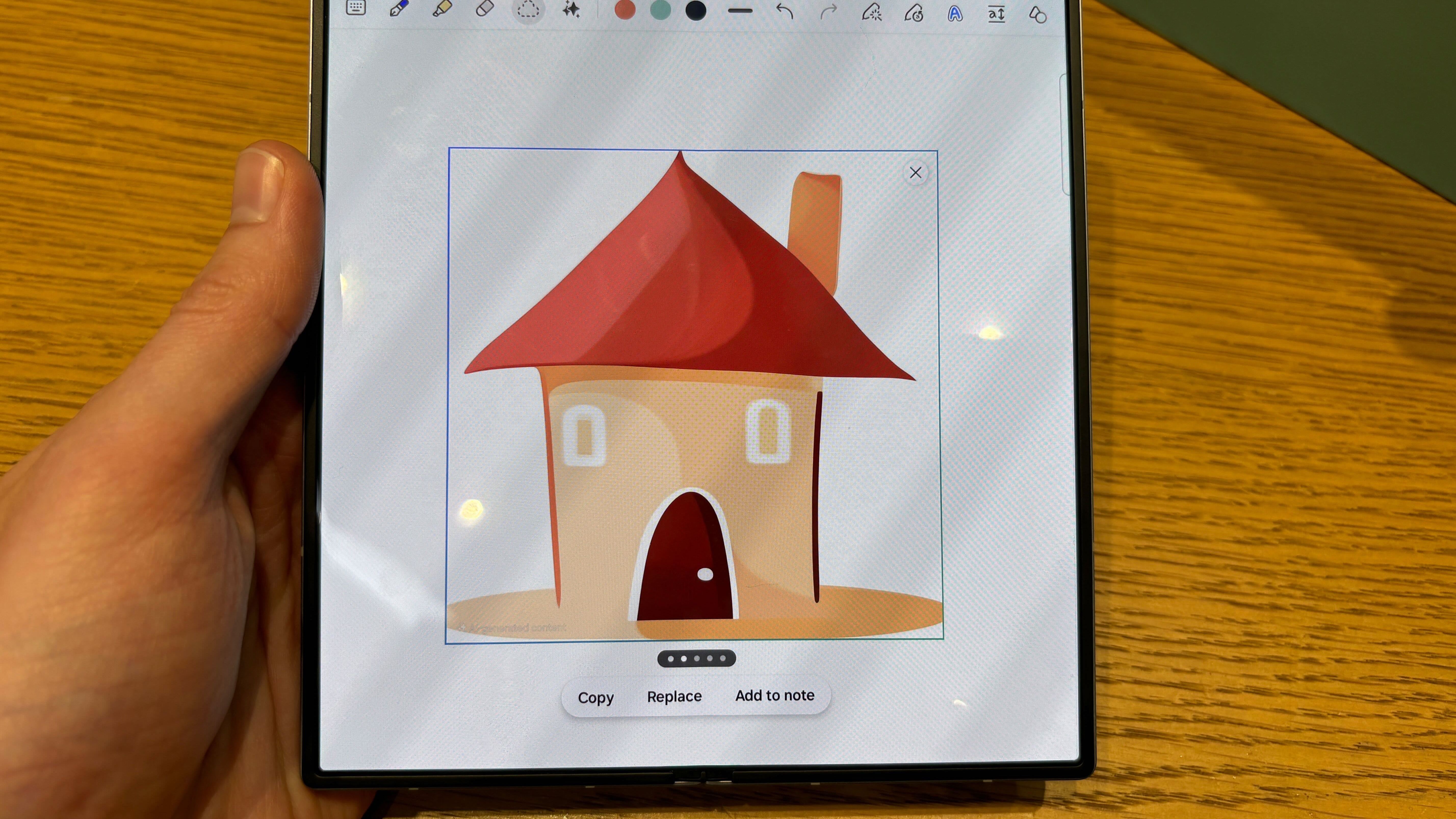
Both Apple Intelligence and Galaxy AI have a fun AI feature that turns your sketches into drawings. This will be the thing you’re going to want to try out first on both systems.
Apple calls its feature Image Wand, while Samsung's is Sketch to Image. We haven’t been able to test Image Wand out in the wild yet, but it certainly looks impressive from the demos we’ve seen. It even takes any text on the same page as your sketch into account when it’s trying to work out what you’re drawing and before it generates an AI image. So, if you’ve got a page open in Notes and you’ve tried to draw a horse next to some text about a horse, that will help Apple identify what your sketch is supposed to be.
Sign up for breaking news, reviews, opinion, top tech deals, and more.
The TechRadar team has been able to play with Sketch to Image at the Samsung event and we have to say, we’re impressed. You get a choice of five styles to see your drawing in: Watercolor, Illustration, Sketch, Pop art, 3D cartoon. Draw something obvious, like a house, and it will work flawlessly, but sometimes it gets it wrong when it's guessing what your more obscure doodles are. A Lego brick that we tried to draw ended up turning into a cooking hob unit before our eyes, for example.
Provisional winner: Samsung
Siri vs Google Gemini
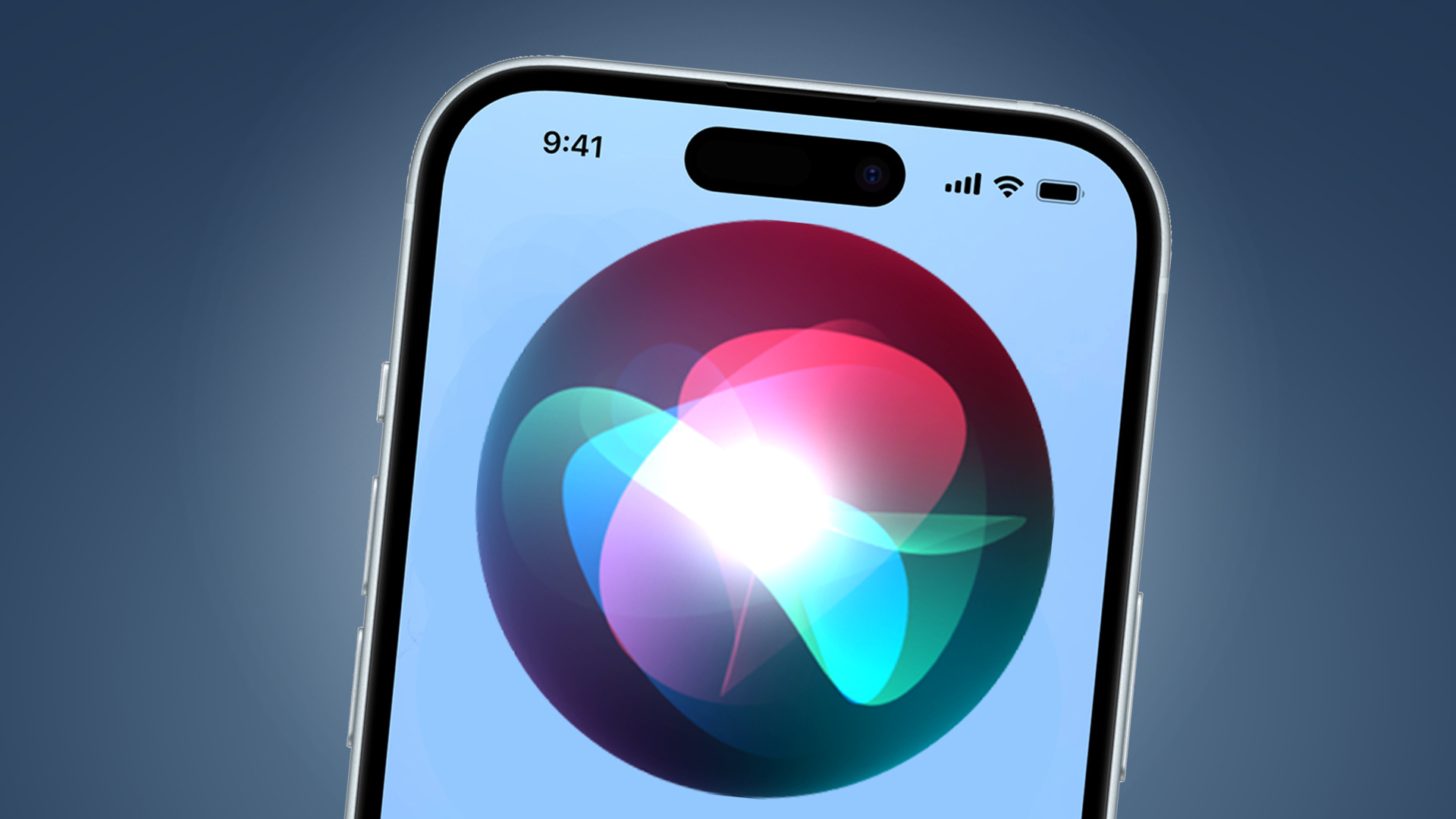
Apple has used AI to enhance Siri in iOS 18. It now includes more natural language-processing features, so you can fumble your words, make mistakes and still be understood. It also remembers what you just asked it, so you can carry on a conversation, and it draws in data from Photos, Calendar, Messages and other apps to know more about you, enabling you to ask things like, “When is my next appointment with Joe?”
In contrast, Samsung has gone all-in with Google Gemini, Google’s AI chatbot, on its latest phones. Gemini can do pretty much everything it can do on the web, but on your phone. It also integrates with Google's apps, like Gmail and Calendar, so it can know more about you in a way that’s similar to Siri.
Gemini can create text, generate images, identify photos and it also promises to do most of its processing on the device, only going to the cloud when it needs to, which aids security. Gemini can also multitask, so you can watch a video on your phone and ask questions about it in a Gemini side panel. The only slight hitch is that Samsung has said this feature is 'coming soon', and hasn't yet provided a firm date.
Since Apple has secure access to a lot of data about its users, we suspect that Siri will be slightly better at the digital assistant elements than Gemini, but we’d have to test them side by side to be sure. For instance, you can ask Siri when your mom’s plane is landing and it will know who your mom is and work out the landing time from your messages and emails. But while Siri needs to call in ChatGPT if requests get too complicated, Gemini is already a fully featured chatbot execution, so it's hard to compare them. What we do know is that whether you’re saying “Hey Siri” or “Hey Google”, AI will be deeply integrated into your next phone.
Provisional winner: Apple
Health apps
Curiously, Apple made no mention at all of using Apple Intelligence to enhance the features of its iOS Health app in the preview of iOS 18 at WWDC. In contrast, Samsung promises that its Health app will make use of Galaxy AI to analyze the vast amounts of data it has on your sleep patterns, heart rate, activity levels, stress and respiratory rate to determine an overall energy score out of 100. This energy score, combined with tips throughout the day on how to improve it, gives you the information to know if you should be taking it easy, or pushing harder with your exercise.
Provisional winner: Samsung
Writing tools
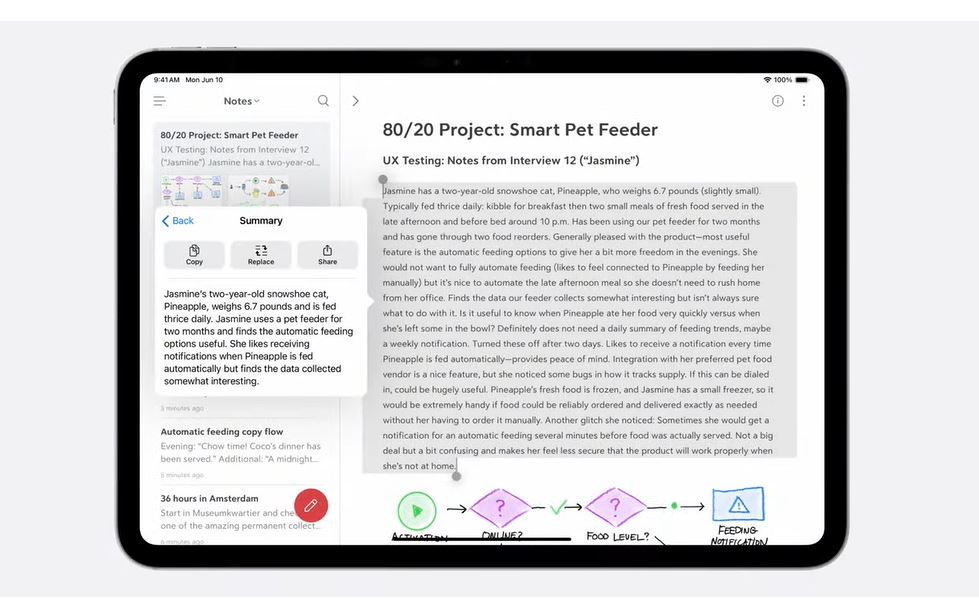
The ability to generate text that could have been written by a human is what first caught the world’s attention and revealed the power of AI chatbots, and both Galaxy AI and Apple Intelligence are bringing this feature to your next phone – but in different ways.
Apple’s integrated writing tools function more like an assistant to text you’ve already written. If you’re typing in an email you can get it to rewrite it in another style, or you can get iOS 18 to bring out the key points of your email and proofread it. Galaxy AI makes use of Gemini, Google’s AI chatbot, which can do these things too, but isn’t as integrated into Gmail or the mail app. However, it does have features such as Composer built into its Mail app, which generates emails based on prompts, so you could type, “Write Jenny an email about why I can’t come to her party”, and it will generate the text.
Since iOS 18 has integrated access to ChatGPT, generating text must be within its powers too, but we’ve yet to see how it will be implemented in comparison.
Provisional winner: Apple
Images and photos
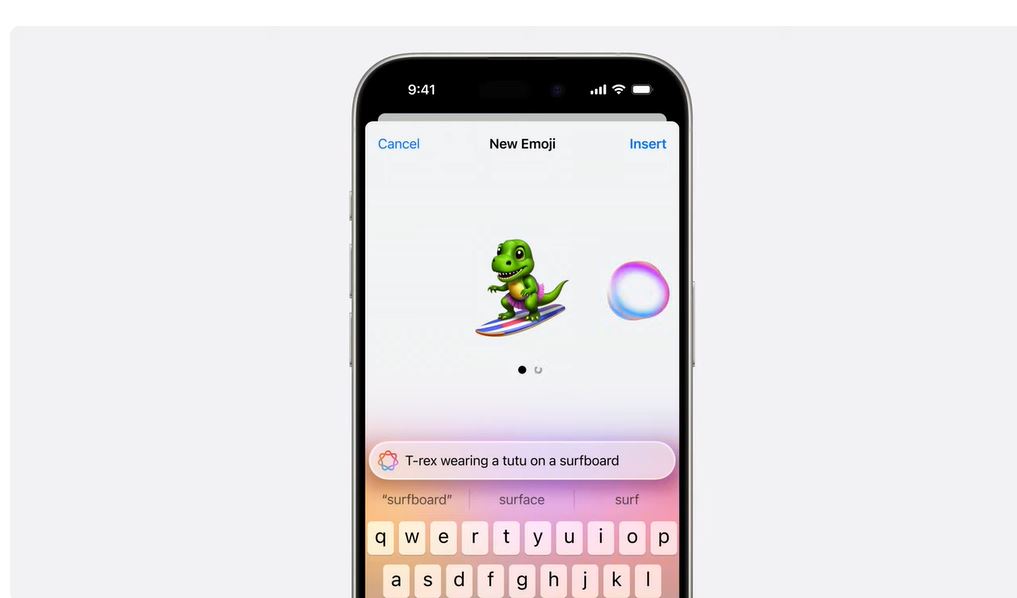
One of the big selling points of Apple Intelligence is the ability to generate your own emojis from prompts, for instance “a fish wearing a tuxedo” or “a smiley face with cucumbers for eyes”. These Genmojis can access your Photos library, too, so you can create them based on pictures of your real friends and family, which is very clever.
While both Samsung and Apple have a raft of AI features designed to clean up your photos, edit them and remove objects you don’t want in there, there’s nothing quite like Genmoji in Samsung’s Galaxy AI offering. Samsung did demonstrate that the new Galaxy phones can generate a 3D image of a person from a photo, however we’re still going to give this one to Apple, due to the sheer variety of results you can achieve with Genmoji.
Apple also has Image Playground, which is an AI image generator, and again it understands who the people in your photos library are. Once created, you can use them in your prompts, so it's easy to create fun image such as “James winning a marathon” or “Dad climbing Everest”.
Provisional winner: Apple
Translation
A big feature of the new Samsung phones is Interpreter, which gives them the ability to translate between languages on the fly. So, you can talk in English, and have it translated into, say, Thai, to the person standing in front of you. The phone will read out the text, too. It also works in phone calls and is particularly well suited to the Samsung Galaxy Z Flip 6, where you have a screen that’s simultaneously viewable by two people; that means you can use it in person to get quick text translations done in the palm of your hand.
Apple, meanwhile, has the Translate app in iOS, but while it can handle voice input the output is limited to text. Samsung is way ahead here.
Provisional winner: Samsung
Search
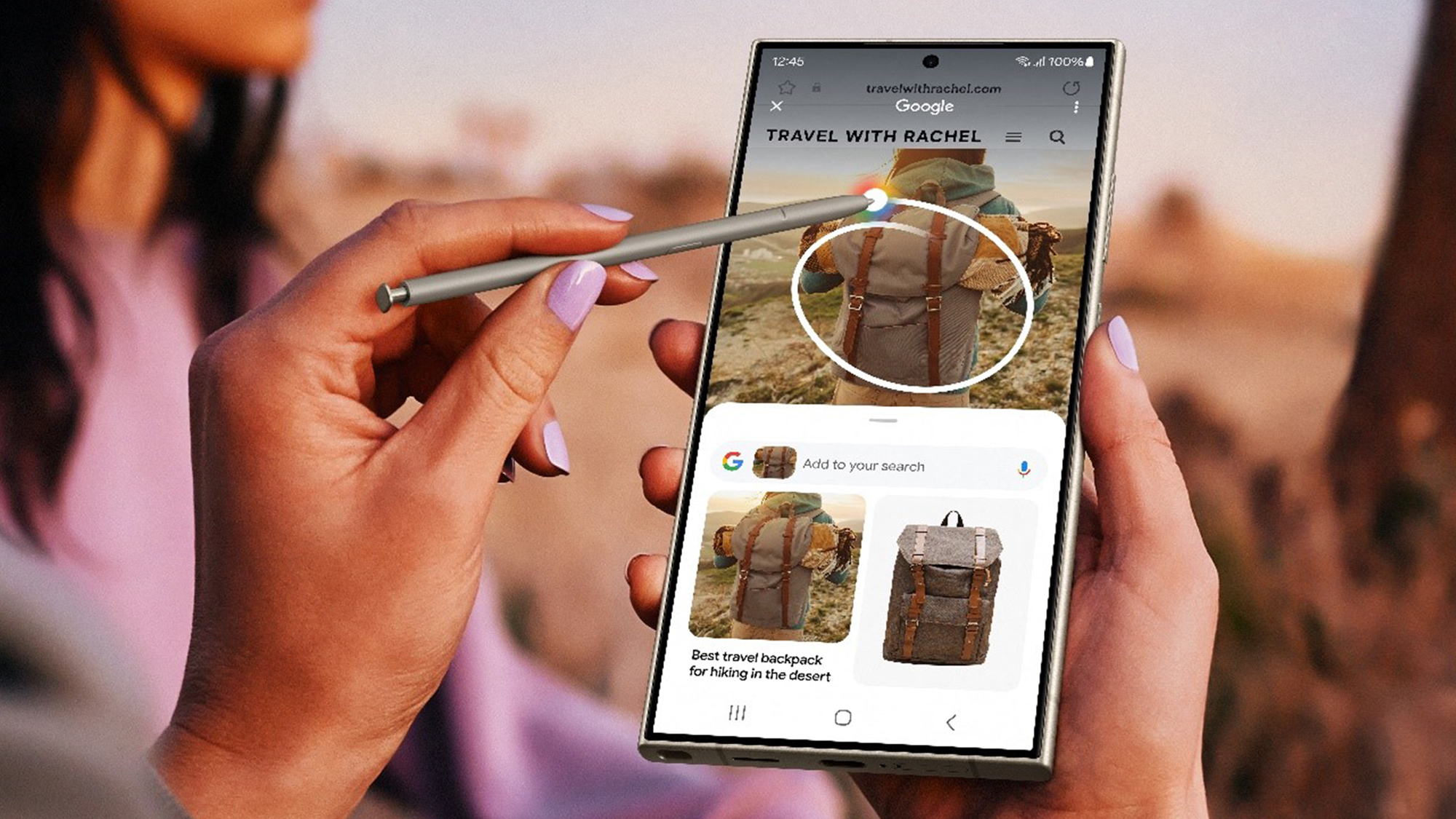
Circle to Search is a great image-based searching feature that’s already available on select Android phones, and will be integrated into both of the new Samsung Galaxy models. You simply draw a circle around an image and Galaxy AI will identify what it is, then search for it.
While Apple has improved natural language searching on the iPhone inside the Photos app, there’s nothing it can do about searching the web – because it’s not partnered with Google. Samsung has the advantage here.
Provisional winner: Samsung
And the initial winner is…
Samsung! Galaxy AI and Apple Intelligence stack up really well against each other. They have broadly similar feature sets, it’s just down to your preference on implementation and whether you are swayed by fun things like Genmoji.
Apple Intelligence feels like it’s going to be more deeply integrated into the OS than Samsung’s Galaxy AI is, but Samsung has a few nice tricks up its sleeve with Interpreter, Circle to Search and the AI innovations in its Health app.
On balance, I’m giving the first strike to Samsung for getting its product to market first, but this will be a long war and it’s not over yet. Let’s see where we stand once the iPhone 16 is out. In the meantime, you can enroll in the iOS 18 beta in order to try out Apple AI there when it goes public, likely later in July.
You might also like
- 'In my lifetime it's one of the biggest transformations I’ve seen'. A Samsung exec talks about Galaxy AI – and why the UI is the AI
- Exclusive: get up to $1,600 off the Samsung Galaxy Z Fold 6 with this hidden deal
- Samsung Galaxy Unpacked as it happened – Galaxy Watch Ultra, Galaxy Ring, and foldable phones, with a sprinkle of AI

Graham is the Senior Editor for AI at TechRadar. With over 25 years of experience in both online and print journalism, Graham has worked for various market-leading tech brands including Computeractive, PC Pro, iMore, MacFormat, Mac|Life, Maximum PC, and more. He specializes in reporting on everything to do with AI and has appeared on BBC TV shows like BBC One Breakfast and on Radio 4 commenting on the latest trends in tech. Graham has an honors degree in Computer Science and spends his spare time podcasting and blogging.
